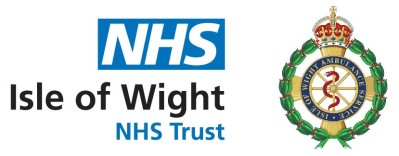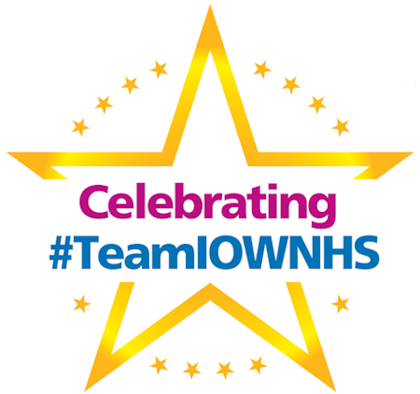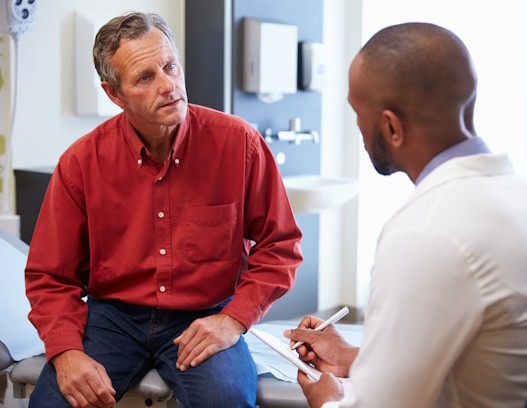Climate change poses a major threat to our health and wellbeing, as well as our planet.
Communities on the Isle of Wight and Portsmouth face particular risks, including rising sea levels, coastal erosion, more frequent heatwaves and poor air quality, which put vulnerable populations at greater risk.
We recognise that we have the responsibility to take steps to reduce our carbon footprint and our environmental impact to deliver sustainable healthcare services now and in the future.
The NHS has set itself the challenge of becoming the world’s first net zero carbon healthcare system and has set ambitious targets for reductions in carbon emissions. The NHS accounts for an estimated 5% of the national carbon footprint and NHS trusts across the Hampshire and Isle of Wight region emit over 1 million tonnes of CO2e of which the Isle of Wight Trust accounts for over 4%.
Our Green Plan
In 2022, our trust published its first Green Plan. Now in 2025, we have worked together with Portsmouth Hospitals University NHS Trust to produce a joint Green Plan setting out actions we commit to take, working together over the next 3 years (to 2028) in pursuit of our goals.
We have an ambitious agenda that means transforming what we do and the way we do it. It includes steps to minimise our future impact (known as mitigation) and steps to manage the impact of climate change on our existing services (known as adaptation). This includes how patients access services, as well as decisions about what products we buy, as well as more traditional things like solar panel installation and LED lighting. It also involves encouraging sustainable travel options for staff, visitors, and patients – you can read more about this by visiting our travel pages.
You will find examples of what we have achieved within the pages of the new plan. We recognise that there is a lot we can and must do. Our Trust Annual Report also provides further updates on what we have achieved to date.
We want to set a strong example for the Isle of Wight, Portsmouth and Southeast Hampshire communities that we serve. We will seek to positively influence the organisations that we work with and alongside including local partners: Isle of Wight Council, and other NHS bodies to deliver on this important agenda.
LED lighting programme
IWT has replaced the existing tungsten, halogen and fluorescent lighting in two buildings with LED fittings leading to approximately 28% total LED lighting coverage. The new lights reduce our energy demand by 90 percent compared to the old ones and all new projects incorporate the latest LED lighting technology.
Biodiversity
In 2024 we took part in No Mow May to encourage the wild plants on our sites to flower, attracting pollinating insects and other wildlife. We have produced a greenspace and biodiversity action plan for St Mary’s hospital site. Additionally, 160 new trees have been planted supported by NHS Forest. On site we also have a large pond that serves as a source of biodiversity enrichment for both fauna and flora.
Electrical power
We are in the process of installing solar panels on our ambulance station with a grant provided by the Great British Energy Solar Partnerships Programme. We have made commitment to reduce our annual energy consumption by 5% and are promoting switch-off campaigns and looking at how we use heating and cooling equipment.
Digital healthcare
The Trust has embarked on the project to digitise the existing paper records that will take 2 years. This will support our moves to a single electronic patient record with other NHS partners across Hampshire. We are supporting virtual consultations wherever appropriate saving patients travel time and reducing emission.
Sustainable travel
We have produced a travel plan aimed at reducing vehicle trips to St Mary’s Hospital and promoting a range of sustainable alternatives for staff, patients, and visitors. We have four electric vehicle charging points on site currently with two more being installed to support the start of our transition to electric ambulances. We support the island wide e-scooter and e-bike rental scheme operated by Voi and we are investing in improved cycling facilities supported by an improvement grant from the council. Our cycle salary sacrifice scheme has been in operation for some years and from April 2025 staff can lease an ultra-low emission vehicle through salary sacrifice.
Medicines
We have taken action to stop using the anaesthetic gas Desflurane which has reduced our greenhouse gas emissions by 65 tonnes of CO2e per year. Plans are also underway to phase out piped nitrous oxide.
Walking aid recycling scheme
To help reduce the amount of walking aids ending up in landfill, the Trust has launched a new walking aid recycling point at St Mary’s Hospital in collaboration with Community Equipment Services (CES), our supplier. Patients and visitors can return items including crutches, walking frames and metal walking sticks so they can be checked, cleaned and redistributed by CES. By reusing an item, carbon emissions reduce on average by 98% when compared to using a new walking aid.
Staff and external engagement
We have established a sustainability champions network currently comprising 35 members to encourage sharing of ideas and initiatives as well as providing opportunities to get involved. Sustainability successes from the Green Plan are shared through newsletters, mailing lists, Trust bulletins, and social media. Collaboration with the Isle of Wight Council has been strengthened via a joint forum, while the Trust also engages with the Biosphere Steering Committee, Biosphere UK & Ireland Network, and NHS Youth Forum. Regular meetings with regional and national NHS and local authority partners also support wider partnership working.
-
Read our Green Plan
-
Visit the Greener NHS website
If you have any questions or suggestions, please contact the Sustainability Team by email pho-tr.



